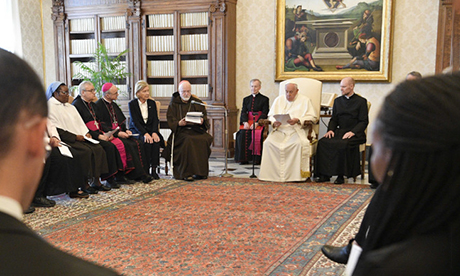The Pontifical Commission for the Protection of Minors is undergoing a significant shift towards a more impact-focused direction, according to Cardinal Seán O’Malley of Boston, the commission’s president.
The commission held its plenary assembly in Rome from May 3-6, during which they discussed various topics and made several important decisions.
According to the commission’s May 8 press release, changes include a proposal updating the Church’s guidelines for addressing clergy sexual abuse, a forthcoming “audit tool” to “evaluate the adequacy of local Churches’ safeguarding guidelines.
“At times, this new direction has been both steep and fast for all of us, reflecting the urgency of the challenges. This accelerated pace over the last six months has caused growing pains as we have attempted to respond to both short- and longer-term needs,” Cardinal O’Malley said in the press release.
“In our plenary, we developed key adjustments to our working methodology so as to clarify our different roles and to create a sense of common ownership of our mandate and of our collective responsibility for its implementation,” Cardinal O’Malley said.
To ensure greater access to training and assistance for victims and their families in poorer parts of the world, the commission established a fund made up of contributions from bishops’ conferences.
Furthermore, the commission approved a five-year strategic plan identifying objectives, goals, and performance indicators to measure progress and provide accountability to stakeholders.
The commission also discussed new tasks, including how to respond to Pope Francis’s request to combat online child abuse and commission an in-depth study on vulnerability in its various forms. The commission agreed to equip church entities with robust measures to combat this emerging area of abuse.
Changes made to create sense of collective responsibility
During the plenary assembly, the commission made key adjustments to its working methodology to clarify different roles and create a sense of common ownership of its mandate and collective responsibility for its implementation.
The statement alluded to criticism made by Jesuit Fr Hans Zollner, a leading expert on abuse, who recently resigned from the commission due to concerns over how the advisory body had been working over the past years.
O’Malley expressed gratitude to Pope Francis and emphasised that the commission recognised the need for a visible and physical centre dedicated to the fight against sexual abuse in the church and a welcome centre for those impacted by abuse.
The new framework will be submitted to church leaders, victims’ groups and other key stakeholders for a period of public comment before final approval later this year.
